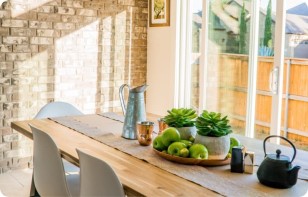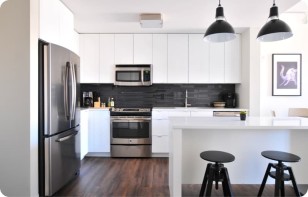What's Better in Germany: Buying a Home for Yourself or a Rental Property?
In Germany, it can be a smart move to begin your homeownership journey with a rental property.Updated on November 14, 2025

Avoiding All Capital Gains Tax
Germany offers a unique advantage: when you hold an investment property for over 10 years, you don't pay the 26,375% capital gains tax. This rule applies whether you sell the property while living in Germany or after moving abroad. If you live in the property yourself, this capital gains tax exemption kicks in already after 2-3 years.
The takeaway?
You should hold your rental property for at least 10 years, whether you live in Germany or not. For your own home, we also recommend holding it for longer to recoup the relatively high transaction costs and earn a good return. So while tax savings are a great reason to invest in real estate, they don’t necessarily tip the scale in favor of renting it out versus living in it.
Lowering Your Tax Burden
When buying a rental property in Germany, one of the most powerful yet often overlooked benefits is real estate depreciation, known as “Absetzung für Abnutzung” (AfA). This tax rule allows you to deduct part of your property’s value over time from your taxable income. This uniquely German feature can make a massive difference to your bottom line.
In simple terms, depreciation lets you write off the cost of the building (not the land) over its useful life. What makes it especially attractive? You can apply the depreciation against any type of taxable income, not just rental income. This means that even if your rental is operating at a loss, depreciation can still reduce your tax bill significantly.
The takeaway?
For the first 15 or so years, a rental property is more beneficial from a tax perspective as you get money back from the tax office. After that typically the revenue exceeds the costs.
BUT you can make a rental property both more attractive and even for longer by using one or more of the following strategies:
Using special depreciation allowance (see below): This is a “killer” solution in terms of reducing your tax burden
Refinancing with a cash-out mortgage: This keeps your interest costs high (and deductible) while freeing up capital to invest elsewhere.
Sell the property to your spouse: Believe it or not, the depreciation allowance resets! Yes, it’s as incredible as it sounds.
In short, holding a rental property for around 15 years already makes a lot of financial sense—but with a few smart solutions, it can become even more profitable.
Build your wealth in Germany
Learn how to invest in energy-efficient, commission-free investment properties and save thousands in taxes every year.
See our projectsSpecial Depreciation Programmes
Normal depreciation rules allow for 2-3% of depreciation annually. But special programs accelerate the depreciation. These benefits make extraordinary returns possible, especially for high-income earners. With the recent changes, you can now deduct about 50 percent of a new rental property's value from taxes in ten years.
How much is the special depreciation?
For new rental properties — completed — from October 1, 2023, to September 30, 2029, you can opt for an accelerated depreciation of 5 %.
Plus you can get the special extra linear depreciation of 5 % over 4 years for properties that meet the high energy efficiency standard EH40/QNG+ and have an upper construction cost limit of 5.200 € per m².
The takeaway?
Use our help to find rental properties that meet these standards and have good rental and appreciation prospects. Then compare to the alternative of buying for yourself.
Rent Control
If you live in an apartment that is rent-controlled with rather favorable conditions, moving into your own home may not be so attractive. Buying a rental property allows you to climb the property ladder while keeping your rent benefits.
The takeaway?
Living in a rent-controlled apartment makes buying a rental property attractive
Financing Terms
Costly financing terms would, in many countries, undermine the case for renting. In Germany, however, financing terms for rental properties are as favourable as those for personal homes.
The takeaway?
Financing conditions are typically no reason to forgo buying a rental property. If you soon want to buy your own property, you are well advised to consult a specialist, as it may delay--or accelerate--the purchase of your own home, due to the conditions banks apply.
What Profiles Benefit Most From a Rental Property?
If you fit one of the following profiles, you may benefit especially from a rental property:
Cash-poor investors: If your savings are limited and you cannot afford to buy your own home, investing in a smaller rental property can maximise the return on your savings and give you early exposure to the property market.
High-income investors: If you are a high-income earner, then a new high-depreciation rental property can provide you with significantly additional income. The extra cash flow can offset part of your own rent or might accelerate your ability to afford a home for personal use.
Asset-rich investors: If you have substantial savings but worry about overexposure to the stock market, investing in rental property can be a compelling alternative to bonds and stocks, as it offers higher expected returns (for higher-income investors) and diversifies your risk.
Older home buyers: If you are an older home buyer, you may find that banks require a very high monthly repayment for the type of home you desire for yourself. Investing in a rental property instead might then be a more viable option.


